CHEA Phal
Senior Research Fellow
Dr Chea Phal is currently the Senior Research Fellow at the Centre for Educational Research and Innovation. He has previously worked as a consultant for the World Bank, a research fellow at Kobe University, and an adjunct researcher at the Research Institute for Economics and Business Administration (RIEB), Japan. He holds a Master's and PhD in economics of education from the Graduate School of International Cooperation Studies, Kobe University, Japan. He has been actively involved in joint projects between UNESCO Bangkok and Kobe University, conducting various educational research projects in Cambodia. His research interests encompass economics of education, education finance, higher education, learning assessment, and field experiments. He has authored and co-authored numerous scientific papers, including those indexed in the Web of Science and Scopus databases.
Email : phalchea@cdri.org.kh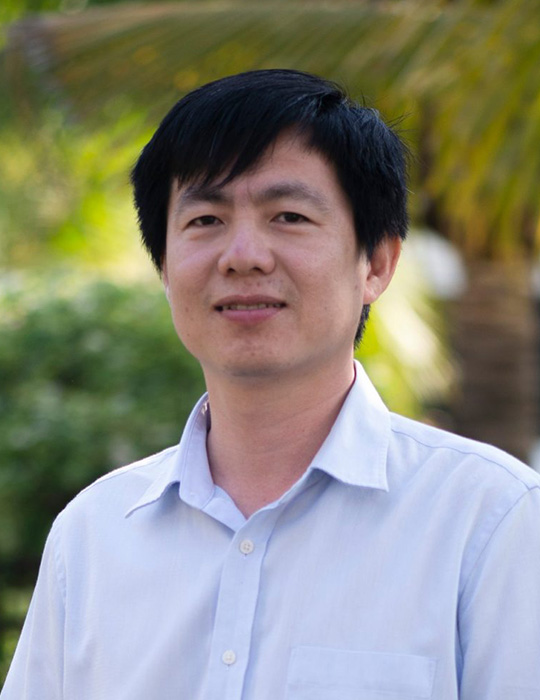
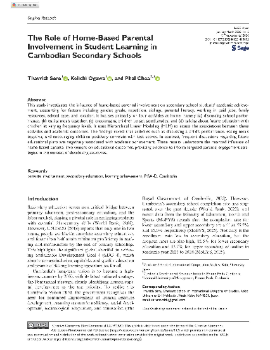
This study investigates the influence of home-based parental involvement on secondary school students’ academic achievement, accounting for factors including gender, grade, repetition, siblings, parental literacy, working in paid jobs, family resources, school type, and location. It focuses primarily on four activities at home, namely (a) discussin...

The current study examines teacher deployment strategies in Cambodian preschools and identifies challenges related to the supply and deployment of teaching staff in early childhood education by assessing the adequacy, efficiency, and quality of teacher deployment. This study employs multiple approaches in data collection, including desk review of e...

In pursuit of sustaining growth in the economy, Cambodia also strives to enhance resilience, inclusiveness and sustainability. This paper discusses the key climate, gender and social issues that need to be addressed in order to achieve this goal. Specifically, the following issues need to be tackled: (i) high carbon footprints of the growth sectors...

Key Highlights Girls in Cambodia consistently outperform boys academically, a trend observed since the 2014 national exam reforms, with boys facing higher risks of dropout. Boys are disproportionately affected by weaker academic engagement, higher absenteeism, economic pressures, and greater freedom, leading to socially undesirable activities...

The Life Skills for Equality Project (LSEP), a gender-transformative program1 implemented by Room to Read (RtR) -Cambodia, has demonstrated promising results in equipping boys with essential life skills and promoting gender equality. This research study examined LSEP's effectiveness in fostering boys’ education engagement, promoting gender...

Background:Closely echoing the Convention on the Rights of Persons with Disabilities (CRPD), the 2030 Agenda for Sustainable Development and its 17 Goals call upon State Parties to ensure the full and equal participation of persons with disabilities in all spheres of society, including access to information. As part of its mandates, UNESCO contribu...

This chapter examines the grade progress of students in Cambodia, where the government has made significant efforts in the past few decades to ensure equal access to basic education and has achieved remarkable success in expanding primary education. This study employs a cohort method approach that combines a student enrolment record analysis over s...

Key Highlights In Cambodia, one in four people over five years old are estimated to have some form of disability. This group tends to be older, female, and residing in rural areas. The most common types of disabilities include difficulties in seeing, remembering, and walking/climbing. Education and work opportunities are limited, especially for wom...

This study investigates the reversal of the gender gap in academic performance in Cambodia’s upper secondary schools, where female students now consistently outperform their male peers. Employing a convergent parallel mixed-methods design, the research combines qualitative interviews and focus group discussions with quantitative surveys across 23 s...
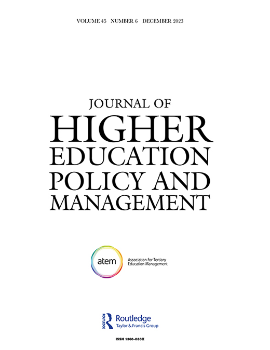
This study explores the international engagement of academics and the factors influencing their engagement in internationalisation efforts in Cambodian universities. Data were gathered through online semi-structured interviews with academics and university administrators and later coded and analysed using reflexive thematic approach. The findings r...

Educational technology (EdTech) is a broad term encompassing tools and resources used in various aspects of education. Its global rise, particularly in developing countries, offers potential solutions to educational challenges. However, while EdTech promises tailored solutions, policymakers need a deeper understanding of its effective and sustainab...

Gender norms and disparities in education impact both boys and girls. Globally, more boys are out of school, and their learning performances are also decreasing compared to girls. These issues affect educational attainment and societal gender equality. Cambodia recognises the importance of addressing gender disparities in education and has initiate...
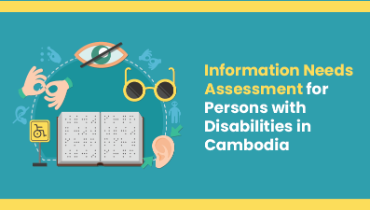
Persons with Disabilities (PWD) in Cambodia face many barriers and challenges: poverty and unsustainable livelihoods; stigma and discrimination; limited access to services, information, justice, and education; inaccessibility of physical infrastructure, etc. In addition, there is a lack of mainstreaming of disability into broader policies and plans...

The gender gap in achievement, which refers to the disparity in academic performance between male and female students, has been a subject of interest not only in education research but also in political and economic contexts. The current discourse surrounding the "gender gap" centres on the question as to whether male students truly exhibit lower a...
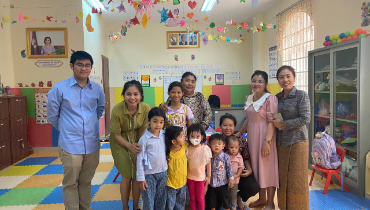
The World Bank project on “Evidence Based Policy Study: Supply and Demand Solutions for Accessibility and Affordable Childcare Services in Cambodia” examines the interlink between supply and demand for childcare services to analyze the correlation between the supply and demand for daycare centers and employment rates. This is an emerging concern...

The ASEAN Committee on Science, Technology and Innovation (COSTI) works to leverage Science & Technology to address common problems faced in the ASEAN region and to raise the level of scientific and technological advancement in ASEAN Member States (AMS). The work of the Committee is guided by the ASEAN Plan of Action on Science, Technology & Innova...

Lack of quality teaching and learning is one of the main causes of the learning crisis for girls and boys alike, therefore there is a need for significant improvements in teaching to ensure that all students, both boys and girls, learn. Evidence on the impact of gender-responsive or gender transformative pedagogy on student learning outcomes is sti...

Access to formal financial services and technology across low-, middle- and high-income countries is far from universal. East Asia and the Pacific and South Asia together account for over 800 million unbanked people, and the region is home to over 50% of the unbanked and digitally under-served globally. Digital financial inclusion is becoming centr...
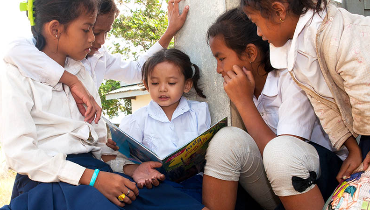
This is a part of the Supporting Holistic and Actionable Research in Education (SHARE), a five-year cooperative agreement with the University of Notre Dame (UND) supported by the USAID’s new Bureau for Development, Democracy, and Innovation/Center for Education (DDI/EDU), to advance global education learning priorities to improve learning outcomes....
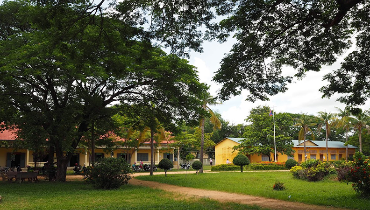
The Covid-19 pandemic has brought about educational disruptions from pre-school to higher education in Cambodia and around the world. Although the impact of the pandemic in Cambodia was relatively low in comparison to other countries in the region and the world in 2020, and schools were able to reopen its door again in early 2021, the February 20,...
